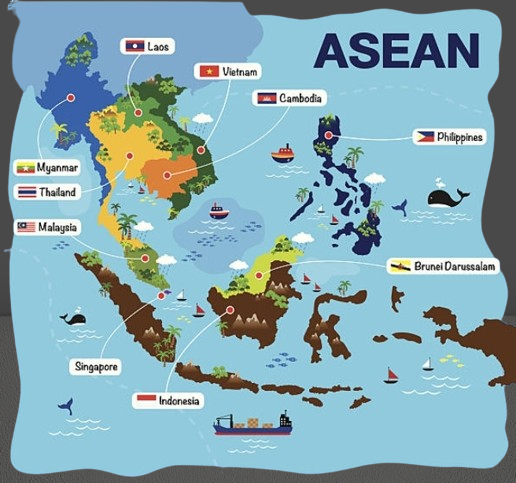
Singapore has traditionally resisted the implementation of unemployment benefits, instead favoring employment incentives and wage support strategies. However, this approach underwent a significant shift.
Deputy Prime Minister Lawrence Wong announced during Budget 2024 that the government intends to introduce a “temporary financial support scheme” later this year specifically targeting retrenched workers. Wong highlighted the challenges faced by displaced individuals, noting that they may encounter difficulties in promptly finding new employment or undergoing training, particularly amid financial pressures.
Consequently, the scheme aims to provide aid to this demographic as they pursue retraining or seek more suitable job opportunities.
Singapore Unemployed Benefits; What Maybe Included
It is expected by experts that the package may include subsidies or potentially replace a portion of a worker’s last-drawn salary. According to Jamus Lim, Associate Professor of Economics at ESSEC Business School, APAC, the government is likely to draw inspiration from the existing SkillsFuture training allowance, which grants 50% of one’s average income over the most recent 12-month period, capped at $3,000 per month, and applicable for up to 24 months throughout one’s lifetime.

However, in practice, a nationwide scheme would likely entail a shorter duration and impose a lower cap on unemployment payouts, as suggested by Lim. In addition, the government might gradually decrease the amount of payouts or stipulate that recipients must demonstrate active job-seeking efforts. Lim further suggests that the government may consider implementing a tax on wages after re-employment, with the tax rate increasing in proportion to the duration of unemployment.
Nevertheless, Lim describes these measures as “relatively more sophisticated tools,” indicating that the government may prefer simpler approaches. Nonetheless, some form of conditionality is likely. Lim speculates that recipients of payouts may be required to provide evidence of ongoing job searches or enrollment in a SkillsFuture retraining program.
Advocating for Singapore Unemployment Benefits: Conditional Financial Aid and Long-Term Employability
Justin Lim, partner, head of outsourcing (Singapore), and head of corporate secretarial (APAC) at Mazars in Singapore, suggests that the forthcoming package is expected to tie financial assistance to participation in pertinent training programs.
Lim emphasises that this strategy aims not only to offer immediate relief but also to foster the long-term employability of the workforce.
He anticipates that the package will underscore the significance of acquiring industry-relevant skills, thereby promoting sustainable employment over unconditional or indefinite financial support.
Goh Jia Yong, a partner in people consulting at Ernst & Young Advisory, explains that the package aims to help displaced workers by offering temporary financial aid and opportunities to improve their skills. At the same time, it encourages them to find new jobs quickly.
Goh sheds light on the anticipated contents of the upcoming assistance package aimed at supporting displaced workers in Singapore. This comprehensive aid package is designed to address income loss, facilitate skill acquisition, and provide essential career guidance during transitional periods.
Lim from Mazars anticipates that the package will align closely with initiatives like the SGUnited Skills (SGUS) and Career Transition Programme (CTP). These programs, which offered courses at local universities and polytechnics, played a crucial role during the pandemic by assisting individuals in transitioning to new roles through upskilling and retraining.
Goh suggests that employers may receive incentives to hire displaced workers, similar to Workforce Singapore’s Career Conversion Programmes (CCPs). These programs provide substantial salary and course fee support to companies that retrain mid-career hires or existing workers.
Anticipated Inclusions:
- Provision of a temporary allowance to mitigate income loss for affected individuals.
- Increased subsidies for training programs to facilitate the acquisition of new skills tailored to diverse job opportunities.
- Access to career advisory services to offer guidance and support during the transition phase.
- Implementation of job search services to assist individuals in securing suitable employment opportunities.
Addressing Layoffs in Singapore Unemployment Benefits
As analysts sound alarms about an impending surge in layoffs throughout 2024, Singapore introduces a new scheme to support affected individuals. Recent months have witnessed prominent companies like Alibaba’s Lazada, Unilever, and Electrolux downsizing or announcing operational reductions in the country.
Trini Tan, a research analyst at Bloomberg Intelligence, attributes potential job cuts to lingering global demand uncertainties and operational disruptions stemming from technological advancements. Particularly, the tech sector’s persistent layoffs may exceed pre-pandemic levels, maintaining a significant proportion of job cuts in Singapore.
In 2023, Singapore experienced a staggering 14,320 retrenchments, marking more than double the 6,440 layoffs recorded in the preceding year. EY’s Goh warns of further layoffs in the pipeline, citing anticipated structural changes in certain industries amid the economic outlook for 2024.
Addressing these challenges, Minister Wong emphasised the inevitability of economic churn driven by technological advancements in his Budget speech on Feb 16. While acknowledging the realities of industry restructuring, Wong emphasised the importance of safeguarding affected workers from the adverse effects of layoffs.
Tan highlights a shift in the proportion of job cuts, with the tech industry surpassing financial and insurance services in Singapore. This trend underscores the sector’s substantial impact on local employment dynamics.
Comparative Analysis: Support Structures for Retrenched Workers in ASEAN

Insights from Mazars’ Lim:
- Retrenched worker support varies across ASEAN countries, tailored to each nation’s economic landscape.
- Offerings include unemployment benefits, job placement services, training subsidies, tax relief, essential needs subsidies, and one-time financial assistance.
- These initiatives aim to cushion job loss impacts and facilitate workforce re-entry through upskilling and reskilling.
Local Context Considerations:
- Singapore’s package design is likely to consider local labor market needs, economic climate, and promotion of lifelong learning.
- Focus on empowering the job-seeking process while emphasising long-term workforce readiness and economic adaptability.
Divergence in Worker Protections:
- Workers in Malaysia, Indonesia, Thailand, the Philippines, and Hong Kong are entitled to statutory severance payments.
- In Singapore, the Ministry of Manpower (MOM) and Employment Claims Tribunals (ECT) lack authority to enforce retrenchment benefits not stipulated in employment contracts.
Singapore Unemployment Benefits Takeaway
Lim remarks, “As unemployment insurance has been debated in recent years, it’s expected that Singapore will craft a package that aligns with its established policies and economic strategies. The emphasis is likely to be on programmes that foster workforce resiliency and employability, rather than on long-term financial dependency.”
Karen Ng, regional head of expansion and market lead, Singapore, Hong Kong, ASEAN, and India at payroll services firm Deel, emphasises, “With more job-seekers chasing fewer job openings in Singapore, it is ‘more important than ever’ for candidates to hone specialist skills or knowledge.”
